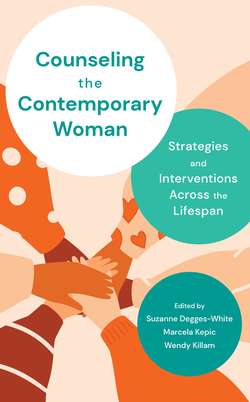Читать книгу Counseling the Contemporary Woman - Suzanne Degges-White - Страница 77
На сайте Литреса книга снята с продажи.
Physical Development
ОглавлениеUnlike the onset of puberty in early adolescence, emerging adulthood lacks physical signs of maturation and is more of a social construct determined by cultural criteria that must be met before one is called an adult (Broderick & Blewitt, 2014). Certain achievements and timing might be important for many cultures, such as completing an education, entering the workforce, or getting married. Despite the fact that adolescents and emerging adults are active sexually much earlier than prior generations, the path to independent adulthood often takes longer. Role transitions, such as marriage and chronological age, have less significance, but accepting responsibility for the consequences of one’s actions and making independent decisions, including around finances, have grown in their importance as signifiers of entry into adulthood (Arnett, 2004, 2007). A sense of independence and autonomy seems be in primary focus as emerging adults transition to full adulthood. Emerging adults have completed their physical growth and are reaching peak physical performance. However, parenting style has been correlated to physical well-being (Reed et al., 2016). Maintaining a high level of physical fitness may or may not be seen as important to an individual. Weight gain is common during emerging adulthood and monitoring one’s weight can be beneficial in addressing this issue (Gorin et al., 2019). The need to consider physical well-being and adapt healthy lifestyle choices is important during this time frame. However, it is also critical to consider that changes in the development of the brain continue well into young adulthood impacting emotional and cognitive development.
